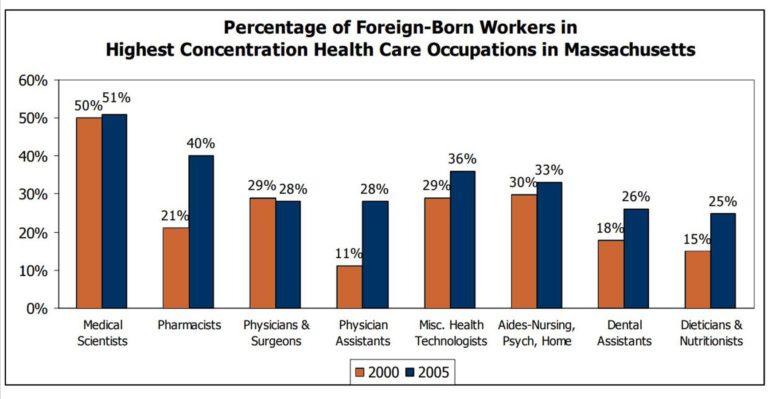Fast Facts
In 2005, health care (along with social assistance) was the largest employment sector in Massachusetts with almost half a million workers, $29 billion in sales and more than 19 thousand establishments.
Foreign-born (immigrant) workers fill critical vacancies and comprised almost 15 percent of Massachusetts’ total health care labor force in 2005. They are particularly concentrated in key sectors at both the high-skilled and low-skilled ends of the spectrum. This included more than half of medical scientists, 40 percent of pharmacists and one-third of nursing, psychiatric and home health aides.

In addition to filling critical vacancies and bringing valuable education and training, foreign-born health care workers bring cultural competence and enhanced cross-cultural communications to health care settings, which are serving an increasingly diverse patient population.
The geographic concentration of health facilities has occurred in places where the foreign-born population increased most rapidly between 1990 and 2000. This means that immigrants are both a source of workers as well as consumers of health care and other services in these regions.
The need for health care workers is accelerating:
- The Massachusetts population 65 and older is projected to grow 27 percent between 2000 and 2020 (Health Resources and Services Administration, 2004).
- An aging population, longer lifespan, technological advances and the state’s Health Care Reform movement will all accelerate the need for health care workers.
To ensure the workforce necessary for the growth and vibrancy of Massachusetts’ health care economy, workforce development strategies and initiatives must link the supply of immigrants to the demands of our health care industry.
